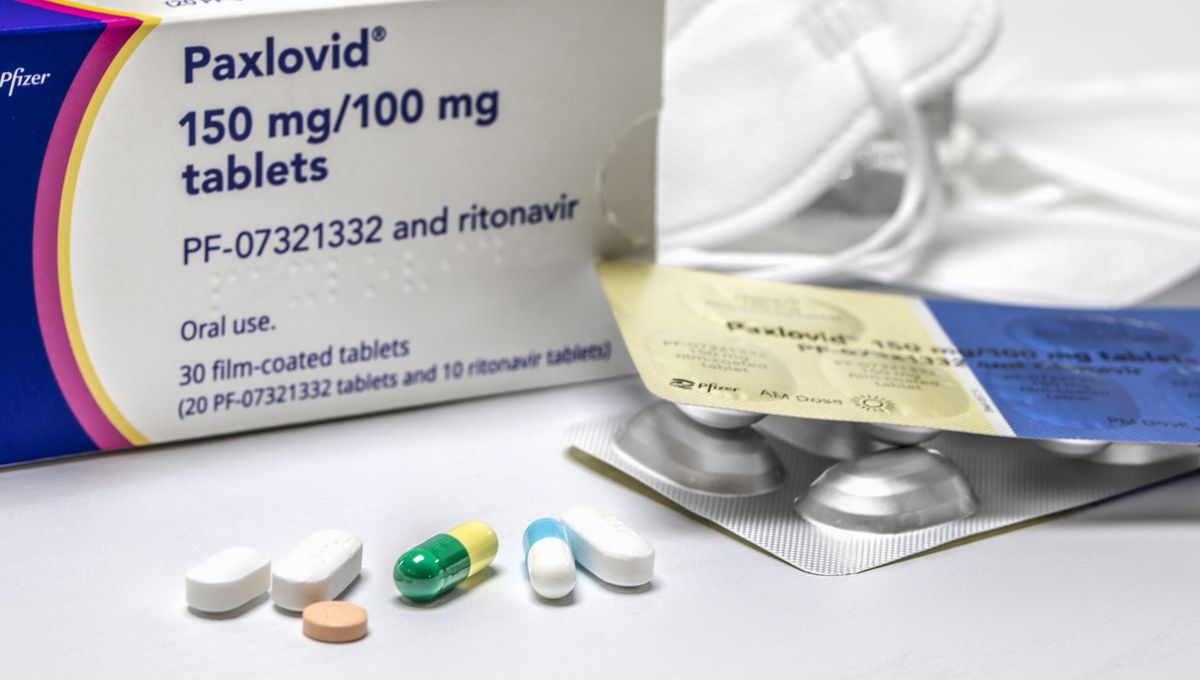
A small study of 156 people with COVID-19 has found that mutations that confer resistance to antiviral drugs were “commonly detected”, especially in immunocompromised patients. The authors stress that most of these mutations were transient and occurred at low frequencies – the results do not mean that drug-resistant strains of SARS-CoV-2 are going to become widespread, but it’s an interesting scientific finding that experts will want to keep a close eye on.
The study focused on the antiviral drugs nirmatrelvir and remdesivir. Nirmatrelvir is one of the two active ingredients of Paxlovid, a drug approved by the Food and Drug Administration (FDA) for the treatment of mild-moderate COVID-19. Paxlovid is taken orally as a pill. Remdesivir, marketed under the name Veklury, is given via intravenous infusion and was the first COVID-19 treatment to receive FDA approval.
The two medicines work in slightly different ways to inhibit viral replication, but both have been shown to reduce the risk of a COVID-19 infection progressing to the point where someone may need hospital treatment.
Some people are unable to take Paxlovid due to interactions with other drugs, in which case remdesivir may be offered instead. The Centers for Disease Control and Prevention (CDC) continues to recommend that those at higher risk of complications from COVID-19 take a short course of either drug as soon as possible after they become infected.
We know from all the new variants it keeps throwing at us that the SARS-CoV-2 virus is prone to mutating. There are fears that among all those mutations, one may arise that gives the virus resistance to one of these drugs. A new study led by a team at Brigham and Women’s Hospital in Boston, USA, set out to investigate this.
The study participants were already enrolled in the ongoing Post-Vaccination Viral Characteristics Study (POSITIVES). A final cohort of 156 people was analyzed, of whom 73.1 percent were female, with a median age of 56 years.
Of that group, 63 people received no treatment for COVID-19, 79 received nirmatrelvir, and 14 received remdesivir. This difference in sample sizes is reflective of how these drugs are used – Paxlovid is the first-line treatment so many more people receive this than remdesivir – but it is a limitation of the study. Another is the fact that the patients who took nirmatrelvir were generally older and more likely to be immunosuppressed; again, this mirrors how the drug is prescribed in the community.
Nasal swabs were collected to obtain viral RNA for sequencing, so the team could look for drug-resistance mutations.
Mutations conferring resistance to nirmatrelvir were identified in nine patients who took the drug and two who did not. In the treatment group, resistance arose more frequently in those who were more immunosuppressed. However, 90 percent of these mutations were found only at very low levels and were transient, meaning the virus later reverted to its original state.
For remdesivir, the picture was similar: mutations were only found in immunosuppressed patients (two out of the 14), and they were low-frequency and short-lived.
All told, the authors concluded that their data suggest “a low risk for the spread of nirmatrelvir resistance in the community with the current variants and drug usage patterns.” In other words, Paxlovid is not losing its efficacy just yet.
They added that “these resistance mutations seemed unlikely to be a substantial contributor to virologic rebound following nirmatrelvir treatment [and] have not increased in frequency in the overall population”, which is all good news.
With a virus as wily as SARS-CoV-2, we’ve learned it’s prudent to keep a close eye on how it is evolving; but for now, at least, there’s no indication that antiviral resistance is going to become a pressing problem. If you’re in an at-risk group and are offered Paxlovid or another antiviral, know that they’re still important tools to help protect against severe disease and hospitalization due to COVID-19.
The study is published in the journal JAMA Network Open.
Source Link: COVID-19 Virus Can Develop Drug Resistance – But Not Very Often, And Not For Long